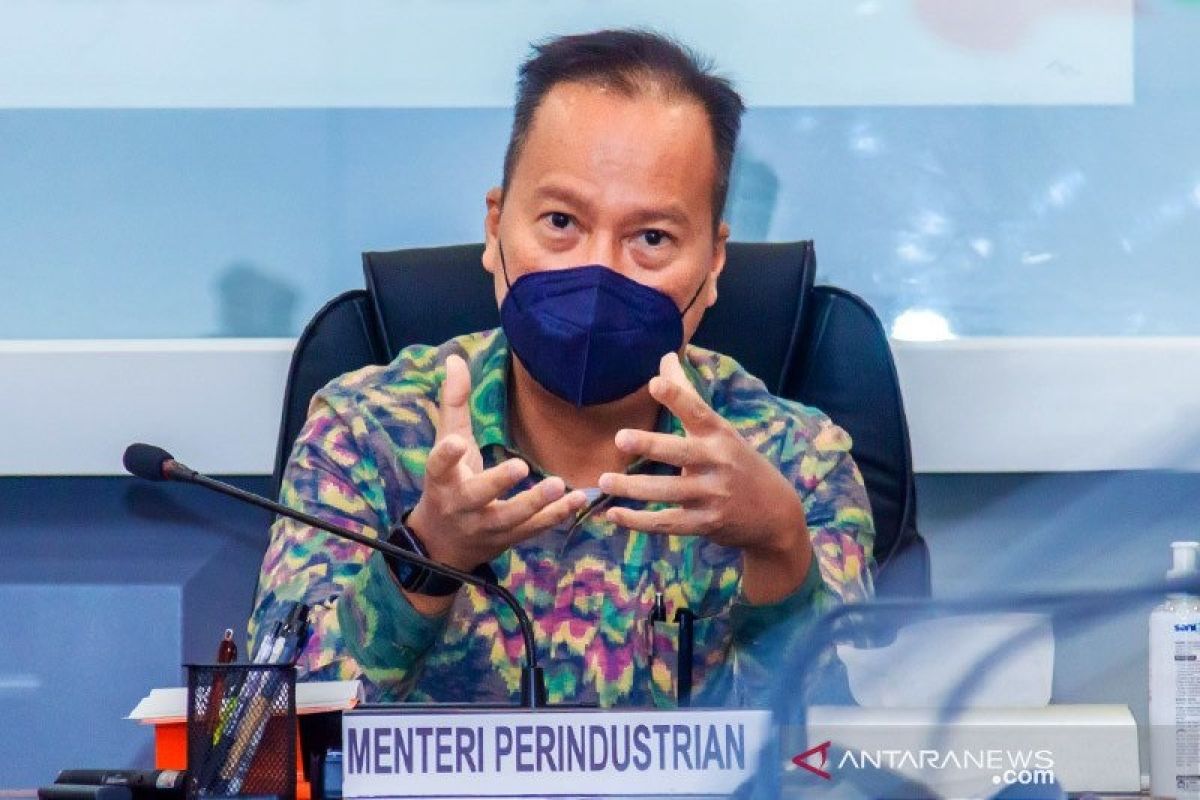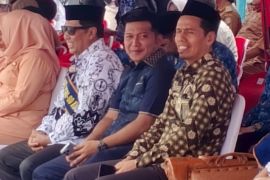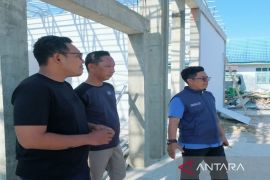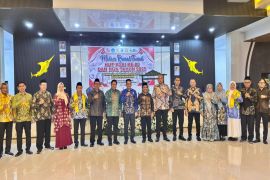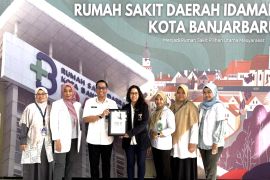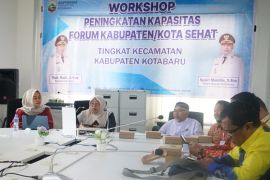Jakarta (ANTARA) - Industry Minister Agus Gumiwang Kartasasmita has elaborated on the Industry Ministry's three priority programs, with a 2022 indicative budget ceiling of Rp2.61 trillion, to the Indonesian House of Representatives’ Commission VI here on Thursday.
"The program2 comprise vocational education and training program, value-added and industrial competitiveness improvement program, as well as management support program," he stated.
Meanwhile, Rp797 billion of the budget ceiling will be allocated for personnel expenditures, Rp360.26 billion for operational expenditures, Rp1.45 trillion for non-operational expenditures, Rp982 billion to conduct education-related functions, and Rp1.62 trillion allotted to run economic functions.
Furthermore, the minister has informed that the vocational education and training program will be implemented by the Industrial Human Resources Development Agency (BPSDMI).
The program will hold the drafting of the Indonesian National Work Competency Standards of the industrial sector, certification of competent industrial workers, competent industrial workforce training through the 3 in 1 training system (training, certification, and placement), industrial 4.0 workforce training, as well as equipment procurement and operationalization of the Indonesian Digital Industrial Center (PIDI) 4.0.
Related news: Introducing digital currency could trigger banking system collapse: BI
Meanwhile, the Directorate General of the Agricultural Industry; Directorate General of the Chemical, Pharmaceutical and Textile Industries (IKFT); Directorate General of the Metal, Machinery, Transportation, and Electronics Industry (ILMATE); Directorate General of Small, Medium, and Miscellaneous Industries (IKMA); Directorate General of Resilience, Territorial, and International Industrial Access (KPAII); as well as the Standardization and Industrial Services Policy Agency (BSKJI) will apply the added value and industrial competitiveness program.
The Directorate General of the Agriculture Industry will prioritize the facilitation of the Industrial Vegetable Oil/Industrial Lauric Oil (IVO/ILO)-based Green-fuel Industrial Pilot Plant construction; machinery restructuring of the furniture industry; and the provision of assistance for the industry 4.0 application to the marine and fisheries food processing industry as well as beverage, tobacco products, and refreshment industry.
Furthermore, the Directorate General of IKFT will run machinery restructuring of the textile, leather and footwear industry; facilitate investors for the growth and development of the petrochemical industry in Bintuni Bay; and ensure assistance for the implementation of industry 4.0 at the textile and apparel industry, downstream chemical and pharmaceuticals industry, as well as the ceramic cement and non-metallic mineral processing industry.
The Directorate General of ILMATE’s attempts comprise facilitating the strengthening of the electronic component industrial structure, verifying the capability of the national steel industry, developing the Center of Excellence for the medical devices industry, developing the pilot project of the Rural Multipurpose Mechanical Tool application business model, as well as facilitating assistance for the application of industry 4.0 in the automotive, electronics, and machinery industry sectors.
Related news: Government committed to developing electric car industry: KSP
The Directorate General of IKMA will facilitate capacity building for Small and Medium Industry (IKM) Centers; develop new IKM entrepreneurs through entrepreneurship and production technical training as well as facilitation of the machinery; restructuring of machinery for IKM; as well as facilitate the application of product certification and strengthening of machinery for IKM.
The Directorate General of KPAII is tasked with preparing Indonesia’s negotiating positions in international agreements; facilitating and exploring industrial resource cooperation with partner countries; providing investment assistance for multinational companies; facilitating the development of priority industrial estates outside Java region; and developing the Halal Industrial Area investment.
Meanwhile, the BSKJI will develop phytopharmaceutical production facilities, accelerate the utilization of industrial technology research and development results through the Industrial Technology Improvement Partnership Fund program, expedite industry 4.0 transformation to strengthen industry 4.0 ecosystems, as well as conduct policy studies on the application of a circular economy in the industrial sector.
Moreover, the agency will provide the green industry standard draft and facilitate the green industry certification, prepare the Indonesian National Standard (SNI) draft, as well as strengthen laboratory testing facilities to support the mandatory implementation of SNI.
"The last priority program is the management support program organized by the Secretariat General and Inspectorate General of the ministry," Kartasasmita stated.
Related news: Government should ensure industry survives amid pandemic: Indef
The program implemented by the Secretariat General comprises the industrial regulation evaluation; competent human resources development in the industry 4.0; coordination for the action plan for the Making Indonesia 4.0 Program; development of the industry 4.0 data and information platform, certification of Domestic Content Level (TKDN) for industrial products, as well as halal industry empowerment.
The Inspectorate General will provide assurance for the priority programs application, as well as consult and supervise the implementation of the ministry’s programs.
In addition, the minister stated that the Rp700-billion budget ceiling will be utilized for implementing other priority programs, such as construction of the Indonesia Manufacturing Center, the establishment of PIDI 4.0, as well as the development of the IKM Material Center.
Related news: People must prepare to live with COVID-19: task force
Related news: Wood processing, furniture industry applying health protocols strictly


